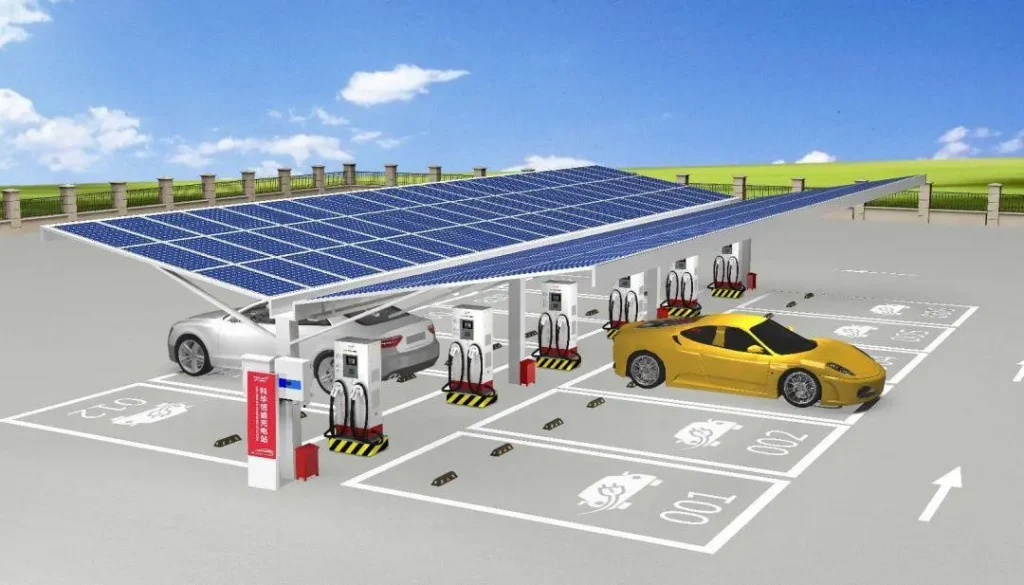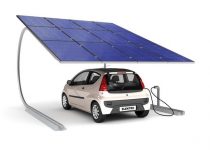What is the role of renewable energy sources in charging electric vehicles?
Renewable energy sources play a crucial role in charging electric vehicles (EVs) by providing a clean, sustainable, and low-carbon alternative to conventional fossil fuel-based electricity generation. Integrating renewable energy sources like solar, wind, and hydroelectric power into the charging infrastructure can significantly reduce greenhouse gas emissions and the overall environmental impact of EVs. Here’s how renewable energy contributes to EV charging:
- Reducing carbon footprint: When EVs are charged using electricity generated from renewable sources, their carbon footprint is significantly reduced compared to charging from conventional grid electricity, which often relies on fossil fuels. This makes EVs an even more environmentally friendly choice for transportation.
- Decentralized and distributed generation: Renewable energy systems can be installed on a smaller scale, such as residential solar panels or small wind turbines, allowing for localized and decentralized EV charging. This not only reduces the strain on the grid but also enables vehicle owners to have more control over their energy sources and potentially lower their energy costs.
- Grid stability and load management: Renewable energy can be used to support grid stability and optimize energy consumption during periods of high demand. For example, charging stations can be paired with energy storage systems (such as batteries) to store excess renewable energy generated during peak production times, and then release this stored energy to charge EVs when needed.
- Vehicle-to-grid (V2G) integration: In the future, EVs with bidirectional charging capabilities could be integrated into a renewable energy-powered smart grid, where they act as energy storage units. During periods of excess renewable energy generation, EVs could store this energy in their batteries, and then feed it back into the grid when needed, effectively helping to balance energy supply and demand.
- Encouraging renewable energy growth: The increased adoption of EVs and the demand for clean, low-carbon electricity can stimulate the growth and development of renewable energy technologies and infrastructure, further promoting a sustainable energy future.

In conclusion, the integration of renewable energy sources in charging electric vehicles is essential for minimizing their environmental impact, improving grid stability, and promoting a more sustainable energy future. As the adoption of EVs continues to grow, the role of renewable energy in their charging infrastructure will become increasingly important.
- Reducing reliance on fossil fuels: By using renewable energy sources to charge EVs, the reliance on fossil fuels for transportation can be decreased. This helps reduce the economic and geopolitical dependencies on oil-producing countries, promoting energy independence and security.
- Green charging stations and networks: Charging networks can integrate renewable energy sources into their infrastructure by installing solar panels, wind turbines, or using clean energy contracts. This enables them to provide green electricity to EV owners, further reducing emissions associated with vehicle charging.
- Financial incentives and policies: Governments can promote the use of renewable energy for EV charging through incentives, subsidies, and policies that encourage the installation of renewable energy systems, green charging stations, and energy storage solutions.
- Lowering long-term energy costs: Although the initial investment in renewable energy infrastructure can be relatively high, over time, these systems can lead to reduced energy costs, as they harness free and abundant energy sources. This can benefit both EV owners and charging station operators by lowering the cost of charging.
- Public perception and acceptance: Charging EVs with renewable energy sources can strengthen the public’s perception of electric vehicles as truly sustainable and eco-friendly transportation options. This positive perception can encourage more people to adopt EVs, accelerating the transition to cleaner transportation.
By leveraging renewable energy sources for EV charging, the overall benefits of electric vehicles can be maximized, making them an even more attractive and sustainable choice for transportation. Developing and investing in renewable energy infrastructure and technologies, as well as implementing supportive policies and incentives, will be essential to achieving a truly low-carbon and environmentally friendly transportation sector.


